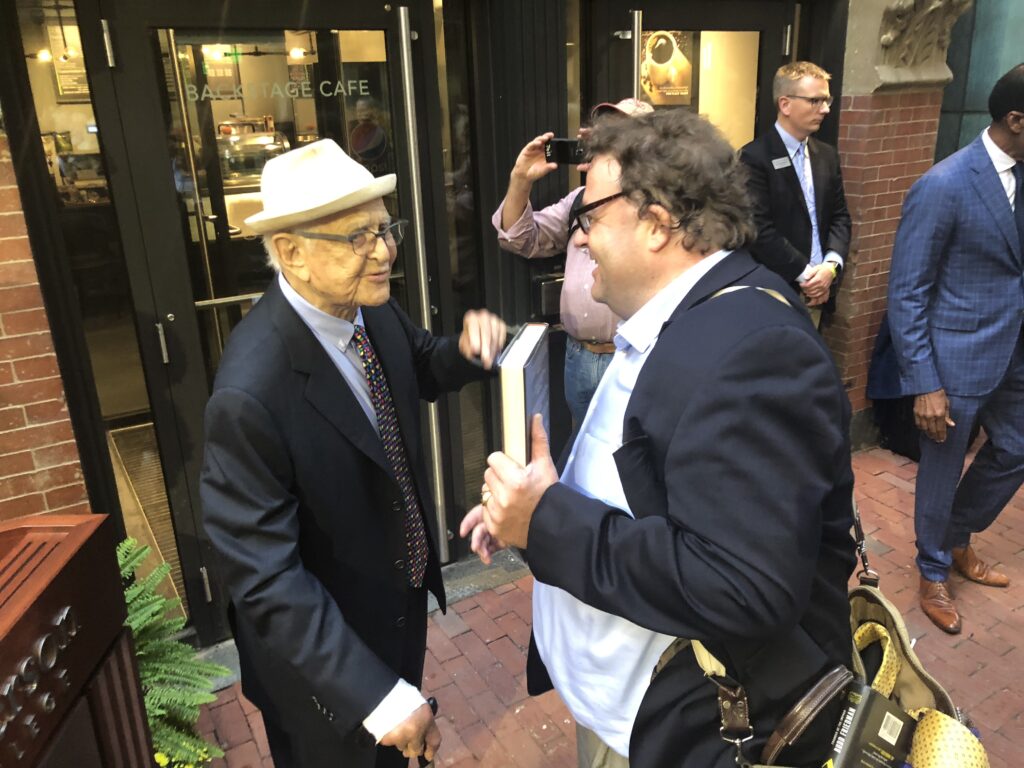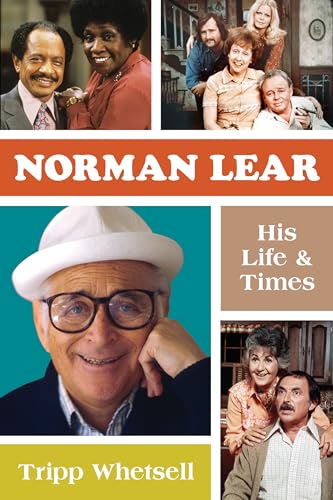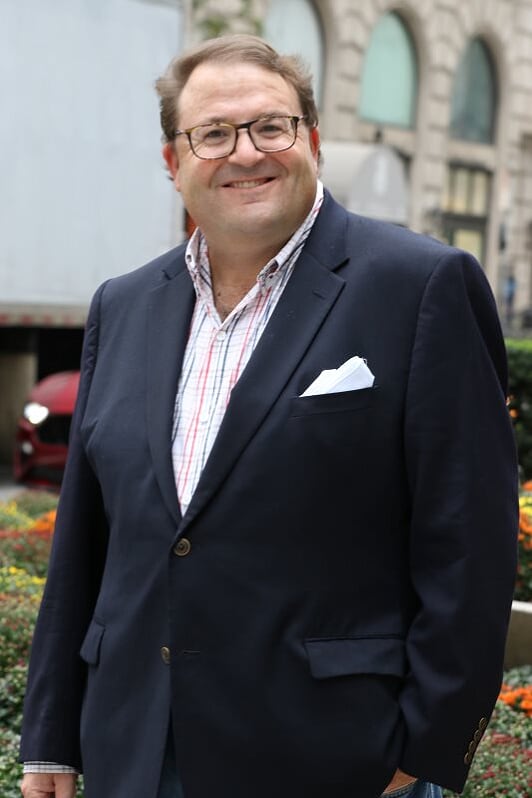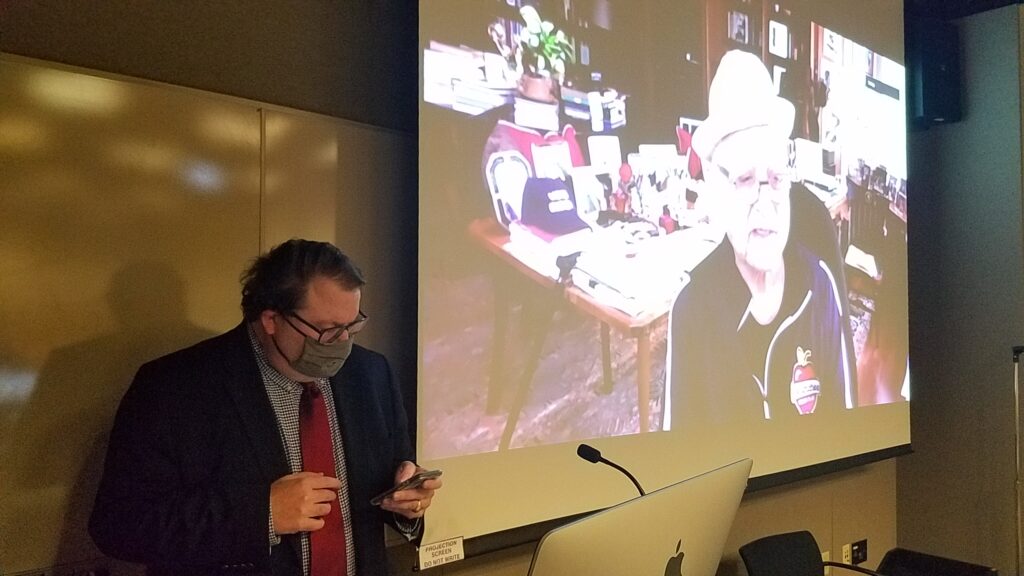Writing Norman Lear’s Biography is Dream Come True for Whetsell ’94

Writing a biography about Norman Lear ’44 seems very fitting for Tripp Whetsell ’94. After all, Whetsell literally teaches a class at Emerson about Lear’s life and the groundbreaking sitcoms he created in the 1970s.
“I’m honored to write this book on one of my childhood heroes and to teach the class and celebrate his legacy,” said Whetsell, affiliated faculty in Comedic Arts. “I’m grateful for all the laughter he’s given me, and it means so much to be able to teach this in the Comedic Arts program at Emerson.”
The book, Norman Lear: His Life & Times, will be released by Applause Books on November 11. The book has already been praised by Publishers Weekly and more.
Like many people who came of age in the 1970s, Whetsell grew up with All in The Family, Maude, Good Times, Sanford and Son, The Jeffersons and the rest of Lear’s storied television show catalog.

“I was probably 5 or 6 years old when I first started watching them. They made me laugh. The timing was great. The characters were so rich and nuanced,” said Whetsell.
“I’ve always been a sitcom fan, and there was something different about his shows versus the sitcoms that came before them like I Love Lucy, The Dick Van Dyke Show, Leave it to Beaver, or The Honeymooners, which were all wonderful,” Whetsell continued. “But Norman’s shows had a message, which resonated with the times. He captured a moment because he was in the right place at the right time, just when America needed it, and that’s what I try and emphasize to my class.”
In the book, Whetsell focuses on the relationship between Lear’s creative life and political activism, and how they intersected. Lear’s shows often had a moral or social message, and were the first to tackle hot button issues such as race, religion, and politics, which are still as relevant today as they were when he brought them into America’s living rooms more than 50 years ago.

“Maude had the first abortion on a sitcom. One of the underlying themes of my class is whether or not these shows could get made today because of how politically incorrect they were and the racial epithets that his most famous character of all, Archie Bunker, used. Even Norman had doubts they could be,” said Whetsell.
“However, they were lampooning bigotry, and Archie was not a mean person. He loved his family and his country deeply. However, he was also uneducated and a product of the times that he grew up in who was afraid of a changing world that he didn’t understand and couldn’t keep pace with. That’s where the roots of his bigotry came from—his lack of understanding—although his character softened and evolved over time.”
The themes and beliefs Lear injected into his shows were also reflected in his activism and philanthropic work, particularly freedom of speech. In 1981, he founded the People for the American Way (PFAW), a progressive advocacy organization that grew out of his deep concerns about the growing political influence of of the Christian right. Among PFAW’s accomplishments was blocking the appointment of a conservative Supreme Court nominee of President Ronald Reagan. PFAW continues to be active today.

Before Lear’s death in December 2023, he was incredibly generous with his time, speaking to Whetsell’s class via Zoom twice – first in 2020 during the height of the pandemic, and again in 2021. Each student was allowed to ask one prescreened question.
“The students loved him. They were blown away from his appearance in class. His energy at his age, even at 100, he was still out there,” said Whetsell who also teaches a class on the history of stand-up comedy and is an entertainment journalist.
Whetsell was unable to interview Lear for the book. He had interviewed Lear in 2011 for the 40th anniversary of TV Guide, and for his last book,The Improv: An Oral History of the Comedy Club that Revolutionized Stand-Up, which Whetsell co-wrote with Budd Friedman, and contains a foreword written by Jay Leno ’73. Lear graciously agreed to take a picture with Whetsell holding the book during Lear’s statue dedication in Boston in 2018.
Whetsell also has plenty of resources to research the television legend. There are reams and reams of articles about Lear and the shows he created, there was a PBS documentary about him in recent years, and the American Comedy Archives at Emerson College was very helpful, said Whetsell.
For the book, Whetsell spoke with several directors and cast members from Lear’s shows, including the late John Amos of Good Times, and Adrienne Barbeau of Maude, among a number of others.
This is the first full-length biography that Whetsell has written, and he approached it similarly to other books he’s penned.
“It was all about the storytelling and trying to tell Norman’s story in a multitude of different ways,” said Whetsell. “One of the main reasons I wanted to attend Emerson was because Norman did. I owe the school so much and getting to write this book about him and teach about him in so many ways brought my life full circle.”
Categories